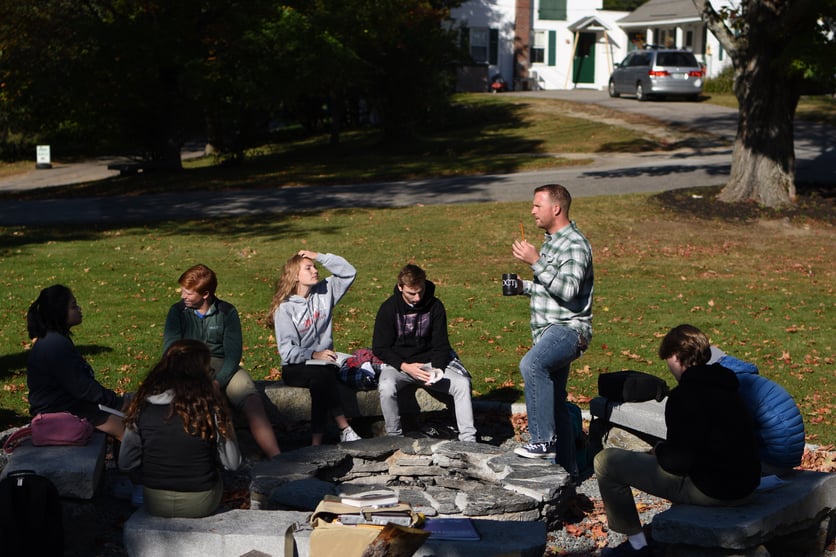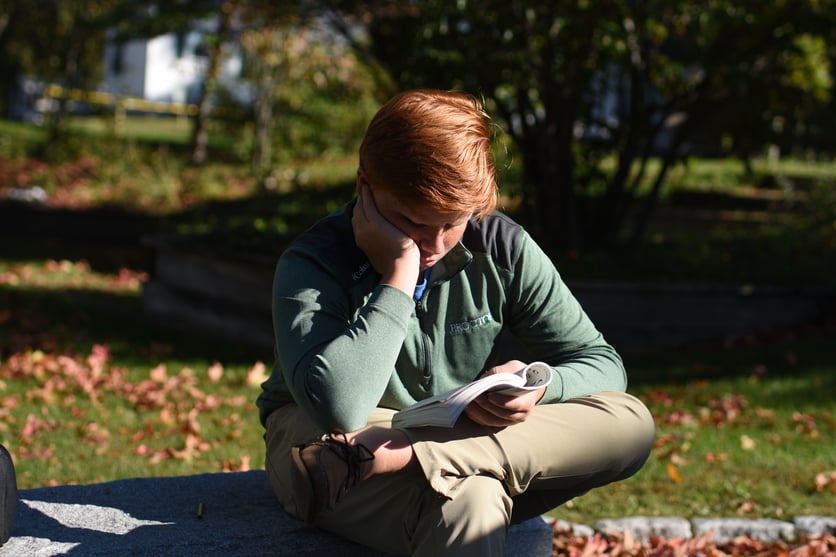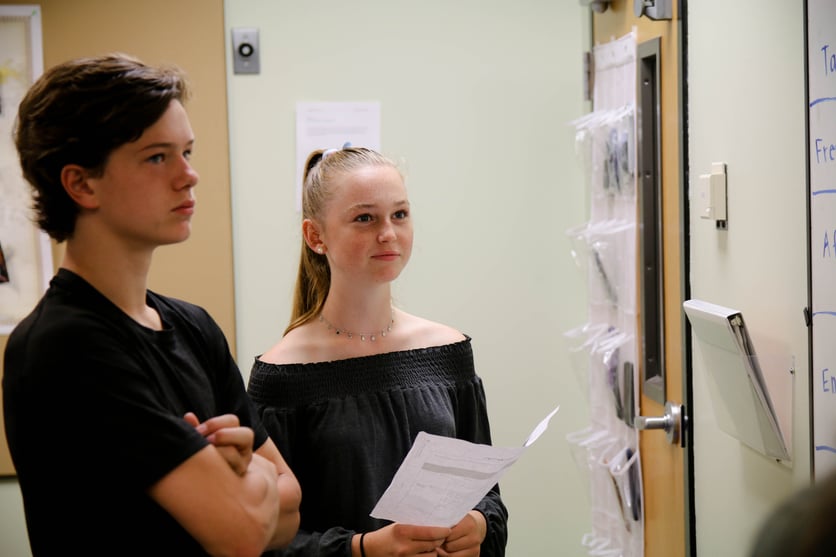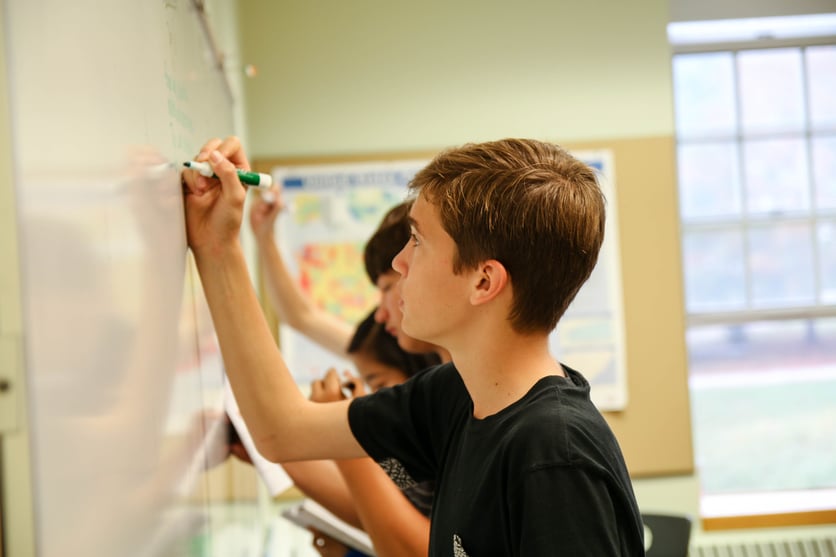As students settle into a rhythm within their academic classes, our hope is they become increasingly willing to take risks, to speak out, pursue a line of thinking, and embrace failure as a step in the right direction. This desired academic vulnerability take times to emerge as its foundation rests in a mutual trust among students and teacher, but as we approach the mid-point in the Fall Term, we look to the collaborative work being done within our English and Social Science departments as an example of what risk taking should look like in the classroom.

Photo Credit: Grant Green '20
Proctor’s educational model is rooted in the notion of helping students expand their identity. Worldviews are restructured while studying abroad, a preconceived sense of self is shattered when students encounter new classes, arts, and people from diverse backgrounds and cultures. As educators, we recognize the value in our students embracing these identity expanding opportunities, but too often we hesitate to model the desired behavior in our own lives. It’s scary to innovate, to think outside the box, to shift outside our comfort zones as educators. Doubt creeps in: Will my students learn as much with a new approach? What if I make a mistake? Their parents are paying for this education, I don’t want to mess up. What if I don't know the answer to a question I'm asked?
 Photo Credit: Grant Green '20
Photo Credit: Grant Green '20
The reality is if we fail to take the same risks we expect of our students, we are falling short in the pursuit of Proctor's educational mission. We always need individuals to push forward, to dream big, to throw an idea on the table we know is important to our mission, and to collaborate toward a solution. This is exactly what Melanie Maness, Caroline Murphy, Travis Glennon, and Fiona Mills have done as they have worked to remove the silos surrounding their work in the English or Social Science departments in an effort to augment the educational experience of our ninth and tenth grade students.
Over the past four weeks, Introduction to Literature classes have read Edwidge Danticat’s The Dew Breaker, while World History classes studied the Haitian revolution, culminating in a presentation of the documentary, Poto Mitan, that all 9th graders will attend Thursday evening. Following this unit, Introduction to Literature will read Kristen Hannah’s novel, The Nightingale, coupled with an exploration in World History of Europe and thinkers of the Enlightenment. At the 10th grade level, Travis Glennon and Fiona Mills are teaching both American Literature and US History, and have been instrumental identifying and implementing crossover conversations throughout the year. In upperclass electives, both departments have worked to create opportunities for collaboration and parallel exploration of topics in a variety of courses, including African history/literature.

New Social Science Department Chair, Geoff Sahs, brings with him to the Proctor community a drive to further develop interdisciplinary curriculum, “There exists no better place than Proctor for students to engage in interdisciplinary study. We are a faculty who is excited to collaborate, and we have a school environment that encourages students to draw upon a wide range of skills, experience and knowledge.” He adds, “I can’t think of a better way to foster a love of learning, a desire for curiosity, and a willingness to engage the community in conversation. I plan on bringing my Economics class to the discussion of Poto Mitan; I can’t wait to listen to the richness of discussion when the 9th graders who are at the beginning of their Proctor experience, and the 12th grade who have wisdom to share (yet still a lot to learn) sit together in discussion.”
English Department Chair Shauna Turnbull P’19 echos Geoff's thoughts, “Actively working to collaborate with another department pushes teachers to constantly engage in pedagogical reflection, both in formal meetings, but also in fly-by, organic conversations. As a result, we can better understand how our specific classes augment the work being done by others, which in turn helps us clarify how our specific courses and curricula support the Profile of a Proctor graduate. As department chairs, Geoff and I are very impressed by the work and planning that has already been done by the teachers in both departments, and we are looking forward to using their experience this year as a springboard to begin collaborating more within the upper-level electives of both English and Social Science.”

There are no guarantees this collaboration will work seamlessly between the two departments, but as with any intentional experiment, there is significant value in the process itself. As Academic Dean Derek Nussbaum Wagler shares, “The work Melanie, Caroline, Travis, Fiona, and the Social Science and English departments are doing is laying the groundwork for future interdisciplinary collaboration across Proctor.” He adds, “It is important for all of us to remember that our ultimate goal is not to teach within a specific discipline like Social Science, Science or English. Our goal is to grow our students into creative, resilient, and knowledgeable problem solvers who take responsibility for their own learning. Coordinating across departments and removing barriers between disciplines gets us closer to that goal by helping students see that we are all working toward a deeper understanding of the world and our place in it.”








